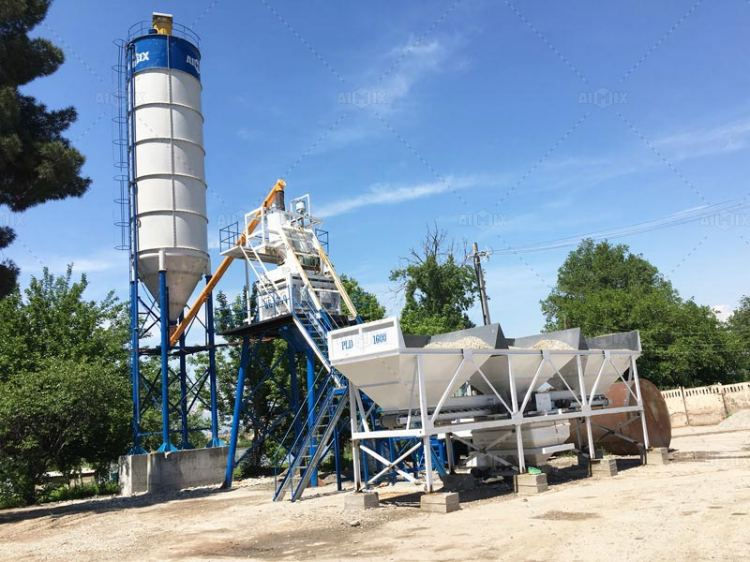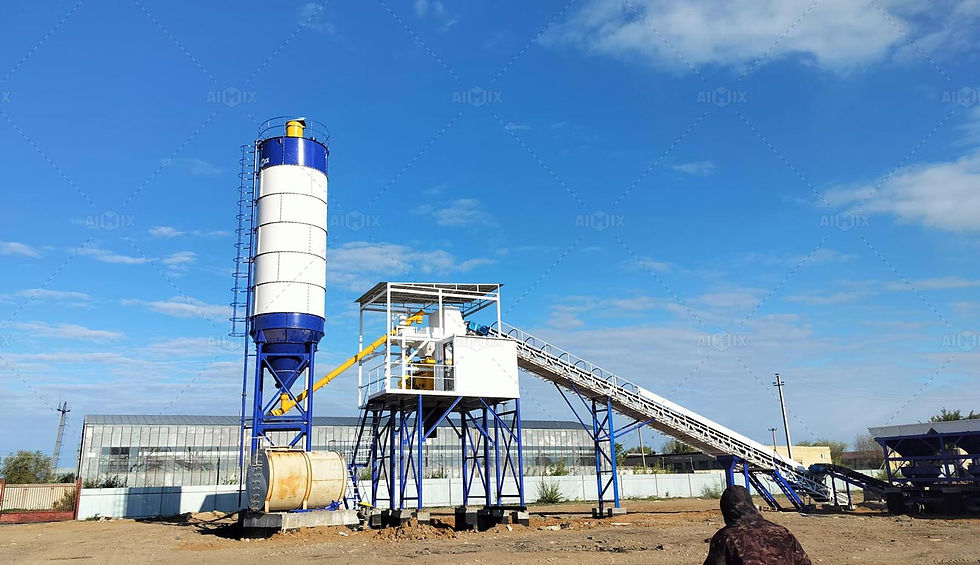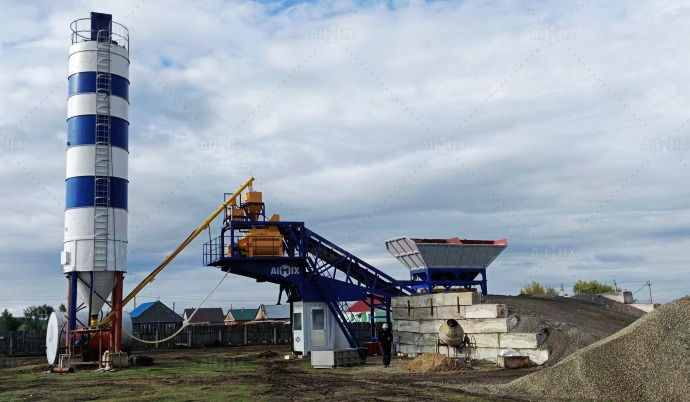How Small Concrete Batching Plants Are Changing the Ready-Mix Industry
- aimixglobal5
- Aug 12, 2025
- 4 min read
The ready-mix concrete industry has witnessed significant transformation over the past decade, driven largely by urbanization, infrastructure demands, and advances in construction technology. Among the most notable trends is the increasing adoption of small concrete batching plants, including mini concrete batching plants, which are reshaping how concrete is produced and delivered.
These compact systems are proving to be game-changers for contractors, developers, and ready-mix suppliers worldwide, offering unmatched flexibility, lower costs, and improved responsiveness compared to traditional large-scale plants. For those searching for a concrete mixer plant for sale, understanding the impact and advantages of small batching plants is key to making informed investment decisions.

The Rise of Small Concrete Batching Plants
Historically, ready-mix concrete production has relied on large stationary batching plants that require extensive infrastructure, high capital investment, and large working areas. However, rapid urbanization and increasing demand for concrete in smaller projects have created a market for smaller-scale plants.
Small concrete batching plants typically have capacities ranging from 25 to 60 cubic meters per hour, with mini concrete batching plants even smaller, often under 25 m³/h. These plants provide a more manageable footprint, lower initial investment, and easier installation, making them highly attractive for small to medium-sized projects, urban construction, and remote locations.
Flexibility and Mobility for Diverse Projects
One of the most significant ways small concrete batching plants are changing the ready-mix industry is through enhanced flexibility. These plants are often designed to be portable or semi-mobile, enabling rapid relocation between sites. This agility is ideal for contractors working on multiple projects or in locations where infrastructure development is still underway.
For example, urban projects with limited space constraints benefit greatly from compact plants. Instead of transporting ready-mix concrete long distances—resulting in delays and reduced workability—contractors can install a mini concrete batching plant near the site. This proximity ensures fresh concrete with consistent quality and reduces transportation costs.
Lower Capital and Operational Costs
When purchasing a concrete mixer plant for sale, cost considerations are paramount. Small concrete batching plants generally require significantly less capital than traditional large plants, making them accessible to startups, small contractors, and businesses expanding their portfolio.
Operating costs are also lower due to reduced power consumption, simpler maintenance, and fewer personnel requirements. Because these plants often use efficient mixers and automated controls, they maintain consistent output quality without the overhead typical of large facilities.
Faster Installation and Commissioning
Unlike large stationary plants, which can take weeks or months to install and commission, small and mini concrete batching plants boast shorter setup times. Many manufacturers supply these plants in modular or skid-mounted configurations, allowing for rapid assembly and startup.
This feature is particularly valuable for projects with tight timelines or those in regions with challenging logistics. Contractors can order a concrete mixer plant for sale with preassembled components, reducing onsite labor and accelerating readiness.

Enhanced Automation and Technology Integration
Small concrete batching plants are no longer just simplified versions of large plants. Today’s models integrate advanced automation systems, including PLC control, touchscreen interfaces, and real-time monitoring. This technology enhances batching precision, optimizes material usage, and minimizes human error.
Many mini concrete batching plants now feature automated weighing systems for aggregates, cement, and additives, ensuring every batch meets design specifications. These features improve the overall quality of ready-mix concrete, making small plants competitive alternatives for projects requiring high consistency.
Environmental Benefits
The construction industry is increasingly focused on sustainability and minimizing environmental impact. Small concrete batching plants align well with this trend. Their smaller footprint means less land disruption, reduced dust and noise pollution, and lower water and energy consumption.
Furthermore, many plants now incorporate dust collection systems, water recycling units, and energy-efficient mixers. By purchasing a modern concrete mixer plant for sale with these eco-friendly features, ready-mix producers can meet regulatory standards and attract environmentally conscious clients.
Ideal for Remote and Specialty Projects
Remote areas and specialty construction projects often face challenges in sourcing quality concrete due to transportation constraints and limited infrastructure. Small and mini concrete batching plants provide a solution by enabling onsite concrete production.
From rural road construction to dam repairs, these plants allow contractors to tailor concrete mixes to project requirements and produce material on demand. This flexibility reduces dependency on distant suppliers and cuts delays, ultimately enhancing project efficiency.
Supporting Local Economies and Small Businesses
The availability of affordable small batching plants empowers local contractors and businesses, fostering economic growth in developing regions. Entrepreneurs can enter the ready-mix market with lower upfront investments and gradually scale their operations.
Small plants support community projects and urban infill developments that might otherwise be unprofitable for large-scale producers. This democratization of concrete production expands market reach and encourages innovation tailored to local needs.
Challenges and Considerations
While the benefits are compelling, buyers looking for a concrete mixer plant for sale should consider several factors:
Production capacity: Small plants have limits and may not suit very large projects or high-volume demands.
Material quality: Proper sourcing and handling of aggregates and cement are essential to maintain concrete quality.
Maintenance: Smaller plants may require more frequent maintenance checks to ensure consistent operation.
Training: Operators should be adequately trained on automated systems and safety protocols.
Choosing the right plant involves assessing project requirements, expected production volume, and available space.

Conclusion
Small concrete batching plants, including mini concrete batching plants, are undeniably reshaping the ready-mix concrete industry. Their compact size, flexibility, cost-effectiveness, and advanced technology make them ideal for a wide array of construction projects—from urban developments to remote infrastructure works.
For those in the market for a concrete mixer plant for sale, investing in a small batching plant opens new opportunities to deliver high-quality concrete efficiently while controlling costs. As the construction landscape continues to evolve, these plants will remain essential tools for contractors seeking agility, sustainability, and profitability in ready-mix operations.




Comments